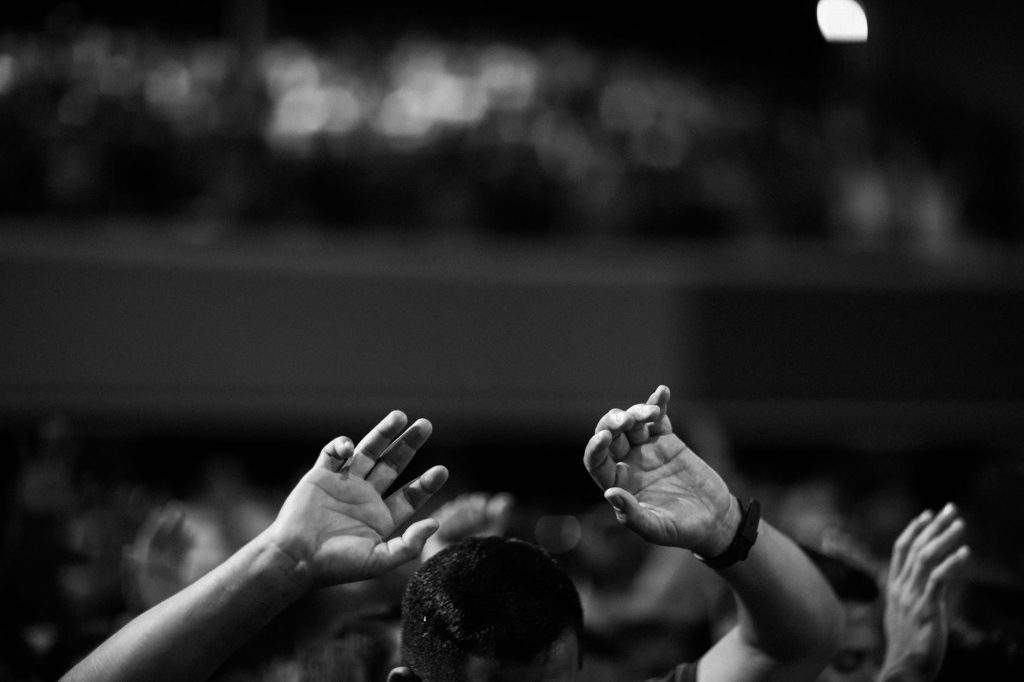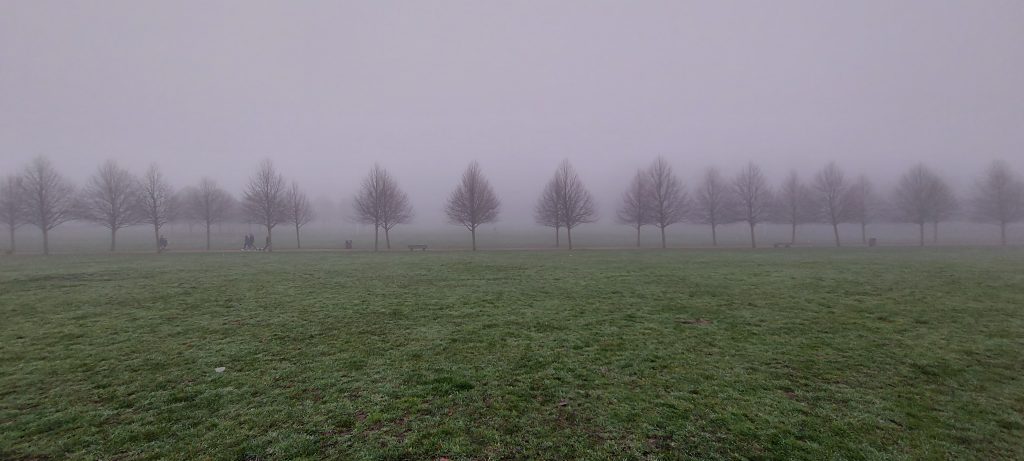RICHARD’S TALK | CAROLS BY CANDLELIGHT
Grace and truth. Living in grace is beautiful, healing, and powerful… And when we see it, or feel it, it’s like water on desert ground. The grace of a mother holding a child that’s fearful, tearful, or angry… or the grace of a child who puts their hands in ours just at the right time… Or the grace of a colleague who listens, leans in, and follows up. The grace of a nurse, or an airline crew, or a teacher, or a shop assistant, or a friend. Ordinary people expressing grace.
Two questions. What do we most need right now, and how can we get it? What do you need right now?
Two words. Grace and Truth… Two beautiful, powerful, life-transforming realities that we all long for and desperately need.
Firstly grace. Grace is gift. It’s undeserved kindness, abundant compassion, transforming generosity. Grace creates a spaciousness, an encouragement, an openness, a welcome.
We have a natural antenna able to immediately pick up its presence the moment we step into a room of grace. When we walk into an atmosphere of grace – we feel it in our bones, our bodies, in our souls. We relax, we open up, we smile, we feel safe, we lower our guard, or our masks, we unfold our arms, we let others in…
Grace is wonderful. We move towards it. We desire it… In our relationships. At home. At work. We all long for grace.
We don’t deserve grace – it is unwarranted, unmerited. It is not reward. It is grace. It is not prize, or compensation, or wage. It is unmerited favour, from others, a gift that we do not deserve but freely receive. It is a quality that is characterized by love, compassion, and mercy – it’s gift.
How we long to live in a world of grace. Of gift.
Many years ago, a Christian journalist called Philip Yancey wrote a great book called, “What’s So Amazing About Grace.” It sold millions of copies, and in it he talks about grace and
un-grace.
Un-grace is the antithesis, the opposite, of grace.
Un-grace is characterised by meanness, inflexibility, selfishness, cruelty, rigidity. It is governed by arithmetic, by rules. Un-grace, unlike grace, keeps a record of everything but especially wrongs. It is the opposite of the transforming, abundant, undeserved gift of grace, and it leads to a hollowed-out life of bitterness, isolation, and distance. As was famously said, “in a world of ‘tooth for tooth and eye for eye’, we all end up maimed and blind.”
Yancey argues that it’s not grace, but ungrace that dominates our world. Ungrace, like all sin, is not just a personal choice, it’s woven into very fabric of our lives and culture. It is in the air that we breath – and he sees its destructive effects everywhere:
- In our repeated attempts to use violence to resolve conflict – which only goes to escalate the ungrace
- Or our pursuit of power and wealth at the expense of others, or the planet
- Or our refusal to forgive those who have hurt us
- And, we note that he wrote his book before the advent of social media – a cosmos of ungrace, a pollution of ungrace.
His only hope, at the end of it all, was for an invasion of grace, because only grace, only grace, can truly heal our world, defeat and forgive our ungrace, and bring us peace.
Jesus is grace – says John. Jesus is God’s grace – embodied. Jesus is God’s grace – in person. Jesus is full of grace.
…
And then there is our need, and our longing, for truth.
Right from our very first breath, we long for truth. We seek out understanding and are ravenous to make sense of how things really are. So, we intuit and learn the truth of gravity, of sound, of words, of speed, of colour, and of love.
From life’s first cry to final breath, we are scanning the world for truth. Is this edible? Is this safe? Is this good? Can I trust them? How does this work? And this matters deeply because truth is the experience of things as they truly are. Truth is reality. And it’s good to live in truth. When we live in truth, we feel we fit. Life makes sense. Things go well. We feel aligned – in sync.
Philosophers have long agreed that truth is objective, verifiable, consistent, and universal.
- Truth is objective – it’s independent of our individual beliefs or experiences. It’s not relative or fluid. We can’t change truth just by believing something different. Ask any consultant oncologist.
- Truth is verifiable. It is completely trustworthy – and can be confirmed through evidence or experience.
- Truth is consistent. It doesn’t change. It fits with other truths. Two opposing truths can’t both be true at the same time.
- And truth is universal. It is applicable to all people and all times.
And so, while it’s sometimes uncomfortable or challenging, we actually all long for truth. For ‘true truth’.
- Truth in our relationships knowing that lies are a poison.
- Truth in other’s words – about us or towards us.
- Truth about ourselves – Do I look good in this? How did I do? Will I recover?
- Truth about the world – Will it hurt? Is it good? Is it bad? Why did this happen?
That universal question, “Why” uncovers our longing for truth. We all need to know why things are the way they are, why they have happened the way they have.
We long to know and understand the truth, because without truth we live in darkness, and ache for meaning.
So, perhaps, if we know what it’s like to live in a world of un-grace, we also know what it’s like to live in a world of un-truth. A world where nothing is as it seems. A world of Instagram, spin, marketing, and the Internet. A world where words have lost their meaning, their foundation, and rootedness – a world where truth floats free of reality.
Into this world, John says, Jesus came as truth. Jesus was truth personified, embodied.
We note that from his own lips, again and again Jesus promised to tell us the truth – “Verily, verily, I say unto you” he repeated – perhaps because he came to embody truth, to give us the truth, tell us the truth – the whole truth and nothing but the truth. He preached that the truth would set us free, and so he never lied. He lived in truth. He was full of grace, and truth.
“The true light that gives light to everyone was coming into the world. He was in the world, and though the world was made through him, the world did not recognise him. He came to that which was his own, but his own did not receive him. (That’s our discomfort with truth.) Yet, to all who did receive him, to those who believed in his name, he gave the right to become children of God – children born not of natural descent, nor of human decision or a husband’s will, but born of God.
The Word became flesh and made his dwelling among us. We have seen his glory, the glory of the one and only Son, who came from the Father, full of grace and truth.
Is it true to say that all of us long for grace, that all of us need the truth.
So, if Jesus was full of grace and truth, how might we respond?
Well, we have a choice. We could reject this grace and this truth. Or just discount it or ignore it – as too costly or too demanding. We could do that. No-one will force us to take hold of this truth. Not even God will do that.
But let me speak the truth… for I should not lie about this truth… We should note that there is a cost to anyone’s choice to leave this grace and truth alone. There is a cost to making up our own truth, for living for ourselves – rather than aligning ourselves with the word-become-flesh. There is a cost to ‘you be you’, ‘express yourself’, and ‘be free’. There is a cost to rejecting the ancient truths that have shaped the lives of saints and transformed the lives of sinners. There is a cost to living outside the grace and the truth of Christ. And many are carrying this cost.
Alternatively, we could choose to accept this grace and truth. We could choose to take it to heart, trust it, put our faith in it, and align ourselves with it. We could do that instead – whether for the first time, or the umpteenth time – and choose to realign our lives with this man – this messiah – this Son of God – full of grace and truth – even though this might be demanding.
But again, let me not lie. Contrary to what some imagine, God’s grace is also not free. Consider the cost of this grace.
Despite its extravagance, its incongruity, this grace is designed, like all gifts, all the best gifts as we know at Christmas, to form and build relationship. Receiving this Jesus-shaped-grace will necessarily bind us into relationship with him. It will change our lives and pull us into his Jesus-shaped obedience and submission – just as it cost him everything.
So, given the cost, we might want to think that all through and weigh the respective expenditure up. Perhaps we need time to reflect, to ask our questions, and to explore a bit more.
If this is you, why not sign up for our Alpha Course, starting on 9th January – a meal, a talk, a small group of people the same as you, curious for truth, and hungry for grace. A chance to think things through with others. No pressure. No strings attached. Just a good time. Come for the first evening and see what you think.
Or perhaps you might want to join us and come along on Sundays for worship, and to taste and see if this grace and truth is real. Come, whether the first time or to rejoin us again after an absence, as we explore the themes of grace and truth in the over the coming months – young and old together. Why not come and join us on Sundays, as we seek to be a community of grace and truth together and learn what that means.
But, as I finish, let me tell you of my prayer for you tonight – whoever you are, whatever you’ve done, wherever you are in life right now, no matter the success or chaos of your lives.
I pray that you might know Jesus, full of grace of truth…. you might live in Jesus, full of grace and truth… you might experience Jesus, full of grace and truth.
I pray you might know God’s grace. Because, in its purest form, grace represents an unmerited favour bestowed upon us, in spite of our shortcomings and imperfections. It is God’s love and benevolence extended to humanity, a gift that we do not earn but receive freely. May you know this grace. Jesus-grace.
For Jesus-grace liberates us from the burden of our own merit and allows us to stand before God with humility and gratitude. When this Jesus-grace fills our lives, it manifests itself in a thousand ways – from the compassion we extend to others to the resilience we cultivate in the face of adversity. It produces the strength that enables us to empathize, and to love unconditionally. And it liberates us into forgiveness, allowing us to release ourselves from the chains of resentment and bitterness towards others.
But I also I pray for you to know the truth, to be shaped by truth, to be aligned to the truth of the way things really are, and the truth of who Jesus really is, and who you really are. I pray for you to live in the truth and for the truth to set you free.
What do we most need? And how shall we obtain it?
Come to Jesus. Seek Jesus. Give yourself to Jesus. Put your trust in Jesus. For he came from the Father, and his is full of grace and truth. Ask him, and he will give you himself and he is full of grace of truth.



